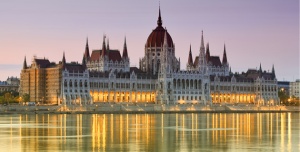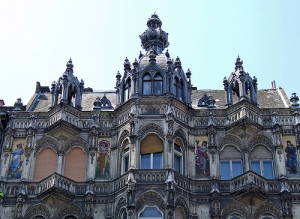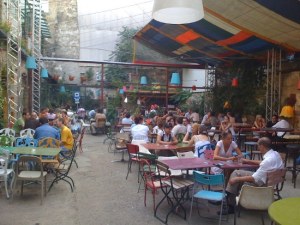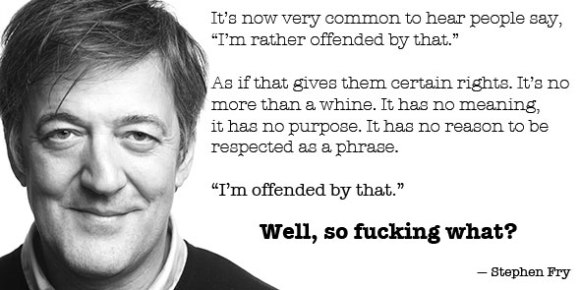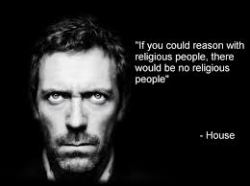How long must the alarm bell ring before decent people wake up? There were signs this week that both the government and the ordinary folk of these islands may at last be ready to arise to a most uncomfortable new day. The last time we slept so late in such circumstances we found Nazi Germany had joined us for breakfast.
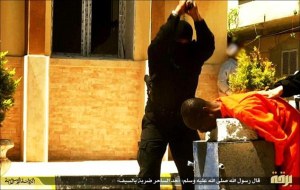
Last year we read, or more probably watched, the news that another Islamic Jihadist group had emerged and had made territorial gains in Syria and Iraq, taking advantage of the post-Saddam chaos and Assad’s desperate civil war to form what they called a caliphate across the borders of the two states. Deprived of reliable information of sufficient depth to appreciate the import of this development, most of us regarded it as yet another sign of the general madness that seems to be the permanent state of affairs in that far-off region. Reading up on the reaction in Britain to the Nazi incorporations of Austria, the Sudetenland and then Czechoslovakia in the late 1930s it is at least clear that government became increasingly concerned, if not the wider public.
Yet until very recent events, there has been really very little sign that government has really appreciated the threat posed by Isil, or Daesh as they are more frequently known in the Arab world. Initially they might have been seen as a benign influence, or at least potential allies in getting rid of Syria’s ugly tyrant Assad; do you remember how close the west came to intervention there? Even when Iraq’s second city Mosul suddenly fell to them we heard little from Westminster, or anywhere else in mainstream British life, about this group or what they stood for. The US State Department at least said that it was “deeply concerned” and that the situation was “extremely serious”. Reading through the British press of that date (it is only a twelve months ago) the main concern seemed to be the Iraqi armed forces and the reasons for its failure to defend Iraqi territory against a rag-bag militia of Sunni extremists. The question of most concern to our press seemed to be how long it would take to chase the insurgents back to Syria.

A year later, no progress at all has been made in that direction; indeed, Isil have made further territorial gains in both countries. It has been left to the Kurds, the national group on the borders of four middle eastern nations but who lack the recognition from any of them of their right to nationhood, to fight back and halt Isil’s progress eastward and northward from Mosul. The USA of course has been bombing the extremists from on high to try and assist the Kurds, but it was always made clear that there would be “no boots on the ground” and equally clear therefore that the impact of their intervention would be very limited. Isil’s leaders and commanders are not stupid, and have developed tactics that render air power limited in effect.
As time passed we learned that this group were a strange combination of seventh-century barbarism, expert propaganda and twenty-first century technology. Using the western-developed internet and social media Isil publicised their horrific triumphs ; the beheadings of hapless western interlopers, the mass killings of fellow Muslims of the wrong sect, the wanton destruction of the archaeological treasures of those areas under their control. Yet until this week most British people could watch all of this develop with distaste and reprobation, with the sort of tutting and shrugging that often presages the words “Well, what are you going to do, with people like that?” The threat, for most of us, seemed to be directed elsewhere.

This week that all changed. The horrible murders of some thirty British tourists on the beaches of Tunisia has created a more immediate appraisal of the situation. The Prime Minister gave us the news at last that Isil provides “an existential threat” to the United Kingdom. He might have gone further, for it is becoming clear that Isil enshrines a world view so at odds with the values of western civilisation that one or the other must collapse. Cameron’s description of “the struggle of our generation” is no exaggeration.
The west, founded on secular Enlightenment values and the consent of the governed, has nothing at all in common with a culture that begins and ends with the establishment worldwide of a brutal, ignorant, anti-democratic, ultra-extreme theocracy, ignorant of and opposed to all that has been achieved so painfully through the course of the last thousand years. A quick internet search will provide plenty of evidence of the nature of the threat, for the Jihadists themselves have been careful to provide us with much of it. Many of us have come across some, perhaps the heavily edited footage screened on our TV sets, and we know it isn’t nice.
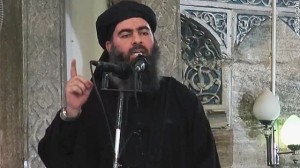
Be very sure, it isn’t at all nice. The establishment of a permanent, unalterable theocracy enshrining the strict application of Sharia law, including beheadings, mutilations and stonings, most of them for offences that would not be illegal in any western country (four people were executed in Syria this week for the practice of black magic), the bulldozing of magnificent ancient buildings, temples and archaeological sites (this week we learned that Isil has placed explosive charges in the ruins of Palmyra), is entirely inimical to the values the west holds dear. Look elsewhere for mercy, empathy, human solidarity, natural justice, freedom of worship, freedom of expression, the appreciation of art and music. If the Jihadists have their way all of these things will be lost to us, and they have us in their sights. They are growing in power, strength and confidence, and it will not be long before they are much more difficult to overcome than they are at present.
What can be done? The British government seems to be more intent upon limiting the threat at home than any wider theatre, perhaps limited by the size of the armed forces they can still command. The USA still dithers, knowing how resistant their public is to the idea of more US soldiers dying ‘over there’.The EU leaders seem preoccupied by financial problems, only Italy and Greece really suffering from the knock-on effects of the middle-eastern maelstrom in the form of illegal immigration on a mass scale. The UN will no doubt put together a resolution condemning Isil’s actions eventually, and no doubt too some proposal or other for a multi-national military intervention will be aired and promptly vetoed by the usual suspects. Nothing will be done quickly, in other words, beyond the supply of money and arms to those in the region with the will to fight.
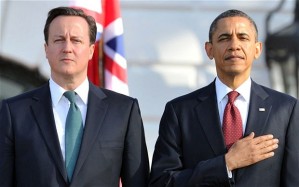
Meanwhile, Isil continue to recruit the young and disaffected among Muslims across the globe, and continue to make gains across the Arab world and beyond. This week we discover that Isil has announced its intention to supplant Hamas in Gaza and “uproot” the state of Israel. Although Israel has never admitted to the possession of nuclear weapons, they do have them. If they are not able to use them against the threat, they will fall into Isil’s hands. Isil has also gained a considerable following in most other Arab nations, especially Libya, where large tracts of territory are under their control. The latest development is that the Isil’s reach has extended to Russia, with a governate declared in the country’s North Caucasus region this week. It remains to be seen what Russia may do about that. Be very sure, the threat to our civilisation is real, and it is growing. At the moment, there is little prospect of meaningful, unified intervention on the part of world leaders.
If they cannot or will not act, what can ordinary people do? We can overcome or diffidence and our fear, for a start. We must tell our leaders what our concerns are, and in our day-to-day lives vocalise them too. We have the high moral ground. Our achievements are great, and God is not, as the late Christopher Hitchens memorably pointed out. Western civilisation, the Enlightenment, democracy and scientific knowledge did not appear through the work of the proponents of blind faith and superstition but despite their opposition to these things, and we must not fall into such hands ever again.










